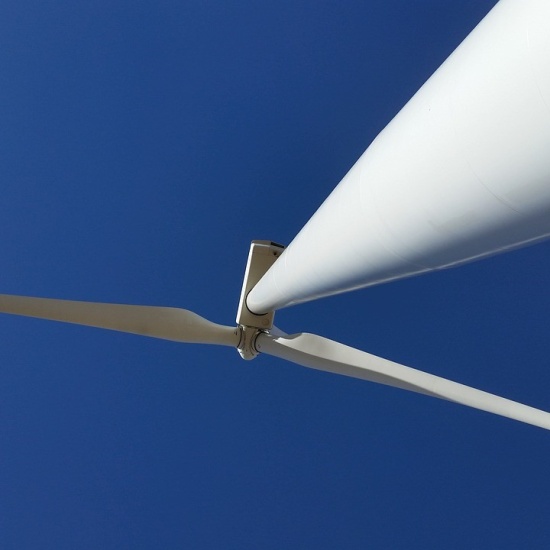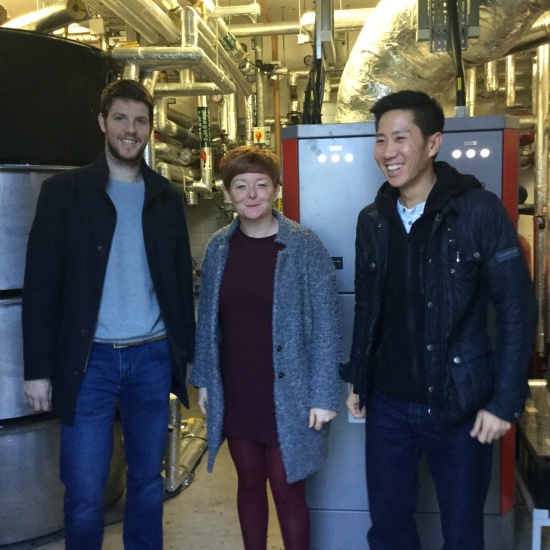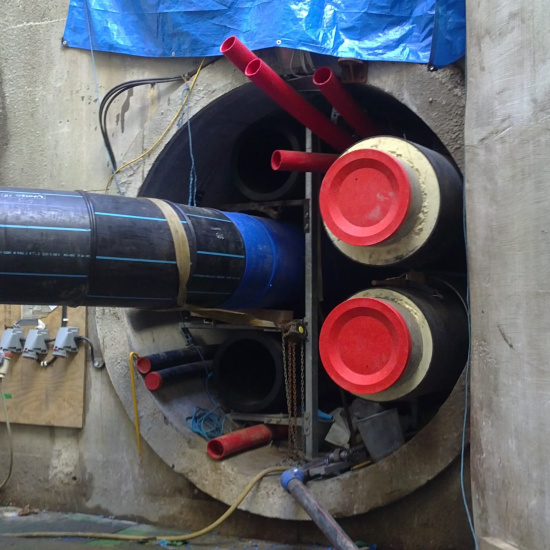COP22 - High Expectations Follow Paris Agreement Ratification
Dr Eimear Cotter gives her summary and thoughts from COP22, the Conference of the Parties, held in Marrakech.
I'm just back from COP22 in Marrakech where I was part of the Irish Delegation following technology transfer and development issues for Ireland. Even in the week that I was there (the conference is still on) there were highs and lows.
Ratification Day
COP22 opened on the crest of a wave with the landmark Paris Climate Change Agreement entering into force on 4 November 2016. I repeatedly heard delegates and countries representatives, who were in Paris last year, say that they would never have expected the Agreement to be ratified just one year later. (Remember the Kyoto Protocol took eight years to be ratified). 109 Parties out of 197 have now ratified the Paris Agreement including Ireland....and the USA. Minister of Communications, Climate Action and Environment Denis Naughton deposited Ireland's instruments of ratification in the UN in New York on November 4th showing real commitment to Ireland playing its part in limiting global average temperature rise to 1.5oC above pre-industrial levels.
Trump dawn
The morning of November 9th, brought the results of the US election which definitively declared Donald Trump the next President of the USA. Given Trump's denial of climate change, his election cast a long shadow over the proceedings with much talk of uncertainty on what lies ahead. Yet, I think that there was no better place to be than at a UN conference to get a sense of what global action really means. Surrounded by 20,000 delegates from nearly 200 countries, I was struck again by the fact that climate change action really is so much more than one country. Relatively small emitters such as the Maldives, Equatorial Guinea, Uganda sat down to negotiate on the finer details of the Paris Agreement beside larger emitters like Australia, USA and the European Union with a stoic determination that our collective momentum counts for more than the actions of one country.
Technology transfer
COP22 is known as the 'Implementation COP' with a strong focus on action. And this is where technology is so relevant. We cannot address climate change without technology - technologies to reduce emissions such as renewable energy and also technologies to help adapt to climate change such as drought resistant crops and early warning systems. These technologies will be the enablers of action. Developing and transferring technologies to support action on climate change has always been an essential element of the UNFCCC process since its beginning in the 1990s. The Paris Agreement placed a further strong emphasis on climate technology development and transfer. It strengthened several aspects including the need for further research, development and demonstration which is an important area that SEAI supports through our annual RD&D programme.
Big business
I attended a Business and Industry event while at COP22 and heard corporations such as Facebook, Veolia and Unilever describe their ambitious climate action at a company level. Dr Bill Weihl, Director of Sustainability, at Facebook spoke about their commitment to have at least 50% clean and renewable energy in their energy mix by 2018. With 35% penetration of renewables in 2015, they are clearly on their way. This is an area where Ireland already leads attracting technology companies such as Facebook and Apple to locate their data centres here.
It was encouraging to hear from business in "the blue zone" which is where Governments negotiate. Sometimes the, often process-driven and procedural, negotiations can seem very detached from the real action needed on the ground . Business engagement with climate change in the run-up to the COP21 is often credited as one of the important elements that ensured success in Paris last year. It is heartening and important to see this engagement continue.
Week two
Ministers from around the world, including Minister for Communications, Climate action and Environment Denis Naughten arrive in Marrakech this week to conclude COP22. High-level negotiations will ensue with scientists and experts supporting and, hopefully, we will see more ambition than ever in the final outcome. The Paris Agreement represents a major turning point toward global action concrete on climate change. It is good for our environment, good for our economies, and good for our climate security.
In the words of Morocco's Foreign Minister and COP22 President Salaheddine Mezouar this "has to be a change at all levels, from local projects through to those that cross international borders and it must create genuine win-win partnerships". The early entry into force of the Paris Agreement places high expectations on us all to deliver.


